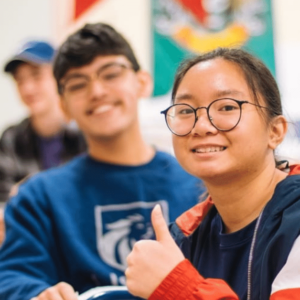Collaboration – A Must for SLPs Working on Language / Literacy with Diverse Learners
$22.00

Course Type: Video – 90 minutes ASHA Course Code: Diversity, Equity, & Inclusion – 7030
The complexity of working with special education students from diverse backgrounds makes collaboration essential. While we all know this, finding the time, buy-in, and resources to do it well can be difficult. What we need is a plan that addresses personality conflicts, scheduling conflicts, and respect of boundaries, so that we can all pool our knowledge and expertise.
Join Dr. Barbara Ehren as she emphasizes the importance of collaboration in education, drawing from her extensive experience in teaching, speech-language pathology, administration, and university instruction. She provides practical tips for effective collaboration with educational teams to support students from diverse backgrounds.
Additional Information
| Population | Early Childhood, School Age |
|---|---|
| Duration | 1.5 hours |
| Credit | .15 Continuing Education Units |
| Topics | Diversity, Equity, & Inclusion (DEI), SLP Professional |
| Format | Video |
Barbara J. Ehren, EdD, CCC-SLP is an ASHA Board-Certified Specialist in Child Language, ASHA Fellow and recipient of Honors of the Association. Currently she is President of Student Success Initiatives, Inc., an entity dedicated to development of materials and delivery of professional learning services on behalf of children and adolescents who struggle with language and literacy with a special focus on secondary students. She was a professor at the University of Central Florida and director of a doctoral program that focused on language and literacy for learners who struggle. Prior to this position, she was a research scientist with the University of Kansas Center for Research on Learning (KUCRL), where her emphasis was on strategic reading, collaboration among professionals in schools, and school-wide literacy initiatives, including response-to-intervention/multi-tiered system of supports (RTI/MTSS). Her experience includes many years in public schools as an SLP, classroom teacher, and district administrator. She serves on numerous committees and editorial boards and is a frequent consultant to countries, states, school districts, and professional associations. She has authored many publications related to language/literacy and school practice.
Financial:
Dr. Ehren is receiving a speaker’s fee for this presentation.
Non-Financial:
Dr. Ehren has no non-financial disclosures to report.
Over many years, researchers and leaders in speech-language pathology have advocated that SLPs in schools collaborate (e.g., Ehren, 2000; 2006; Joffe & Nippold, 2012; Mitchell, Ehren & Towson, 2020; Nelson, Bahr, & Van Meter; 2004; Nevin, Thousand, & Villa, 2009; Paul, Blosser, & Jakubowitz, 2006; Squires, Gillam, & Reutzel, 2013; Wallach & Ehren, 2004; Young & Bowers, 2018). Specific to the work of SLPs in schools, we might consider the following rationale: partnerships are better for students; partnerships are better for the school; partnerships are better for you as a professional. The complexity of working with students with diverse language learning needs makes the pooling of knowledge and expertise essential.
The term “collaboration” is used to mean a wide range of “working together” practices. Not all forms of “working together” constitute the types of substantive interactions among professionals that reflect true collaboration. It is difficult to encourage school SLPs and teachers to engage in collaborative practices that are not clearly defined. Given the realities of school practice and the kinds of interactions among professionals that should and do occur, Mitchell, Ehren and Towson (2020) conceptualized a continuum of “working-together.” The purpose of this continuum is to help professionals reflect on the nature of a collaborative practice in terms of its intensity to consider its appropriateness at a given point in time. Workshop participants will explore a variety of practices along this continuum and discuss the appropriateness of employing them in specific contexts and situations.
A critical component to collaboration is selecting the targets in language and literacy around which to collaborate. In this session we will define the linguistic and cognitive-related underpinnings that underlie listening, speaking, reading and writing goals that underlie difficulties students have with language/literacy and provide the focal points around which professionals should collaborate.
Finally the practical implementation of collaborative practices necessitates an honest appraisal of the barriers to effective collaboration and the corresponding strategies to overcome them: Time to plan and implement; Personality conflicts; Scheduling conflicts; Territoriality; Lack of mutual priorities; Expertise; Numbers of teachers to work with; Different goals; IEPs; Caseload of SLPs/Workload; Space; Teacher isolation; Lack of understanding of roles; Administrative support; Follow through; Accountability; Choosing what is most important; Diversity of student needs.
Participants will be able to:
• Explain the rationale for collaborating with other professionals on behalf of diverse learners
• Define collaboration on a continuum of “working together”
• Describe the language/literacy targets around which professionals might collaborate
• Analyze barriers to collaboration and strategies to overcome them.
Time-Ordered Agenda
5 minutes– Introductions and Disclosures
5 minutes– Advance Organizer
5 minutes– Rationale for Collaboration on Behalf of Children and Adolescents with Diverse Learning Needs
5 minutes- Defining Collaboration
15 minutes– Collaborative Practices on a Working Together Continuum
20 minutes – Important Language/Literacy Targets for Students with Language Differences and Language Disorders
15 minutes– Typical Barriers to Collaboration in Schools and Strategies to Overcome Them
5 minutes- Post Organizer
15 minutes- Moderated Q and A Session
Need CEUs?

 Share
Share
 Tweet
Tweet
 LinkedIn
LinkedIn
 Pin
Pin
 Email
Email





